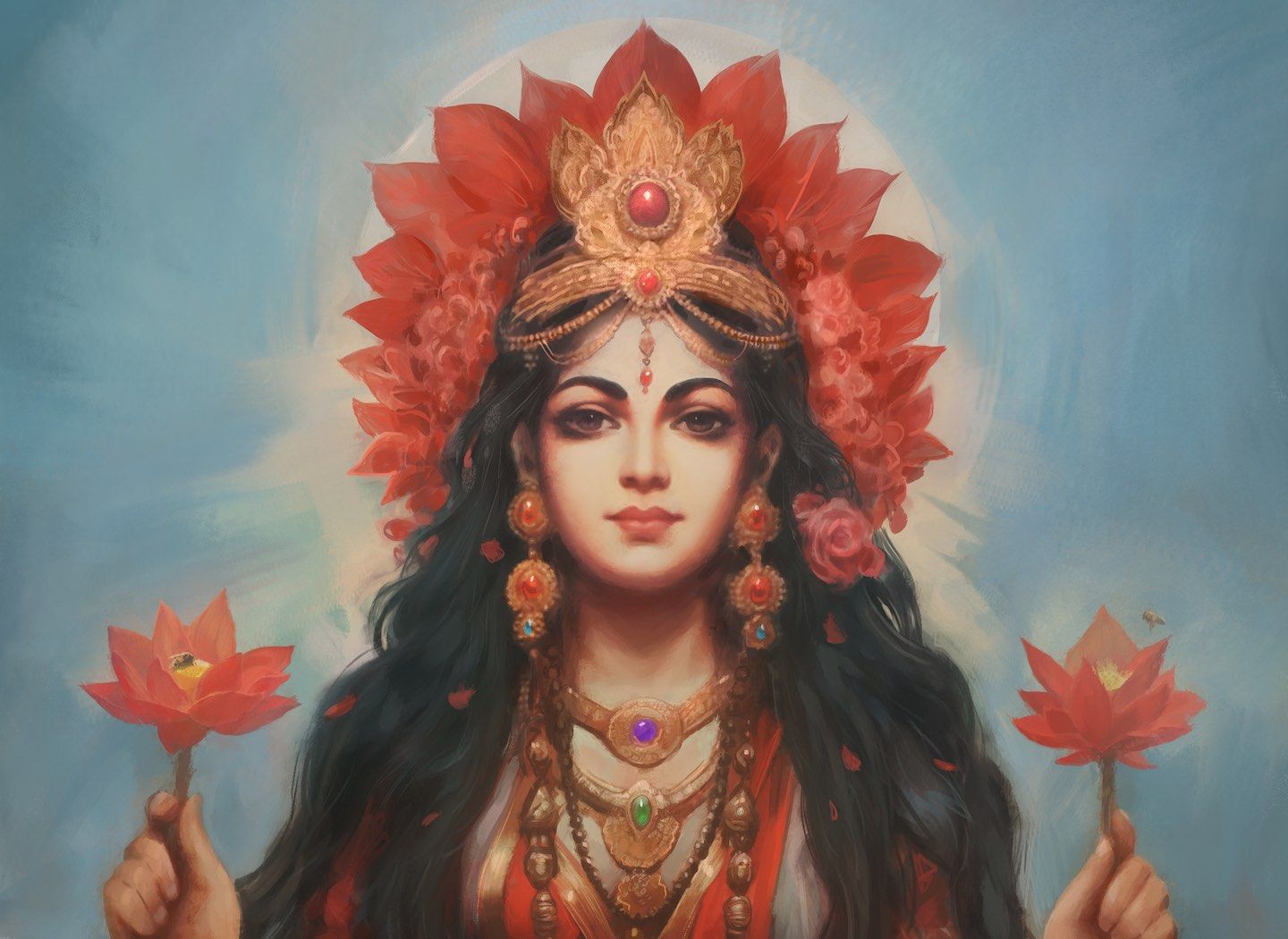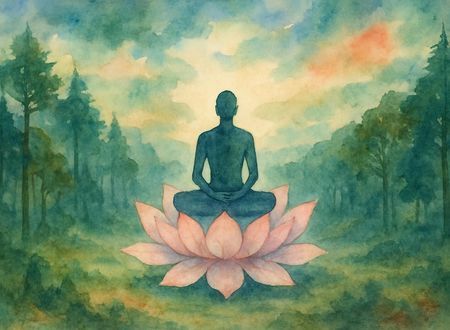Have you ever felt this itch you can’t suppress when someone has transformed your life and you can’t wait to share it with your loved ones? You want them to experience the same happiness and bliss that you have. It’s a very real emotion. It’s the reason why when we come across something joyous or heartbreaking, we share. That’s the kind of position I am in today.
You see, I sat down at my desk to write a post on a completely different theme. Half way through, I thought I should instead share the glory of sadhana, of the Universal energy and its invocation. For, everything I have in life today, all of which are in absolute abundance, I owe it to divine grace. You can call it the law of attraction brought into action through the power of awakened mantras.
And so I shelved the post I was writing and decided to share the opening of my new book, The Legend of the Goddess: Invoking Sri Suktam. As follows:
Emerging from the sacred verses of the Rig Veda, Sri Suktam is one of the most ancient and powerful hymns in the world. This beautiful sadhana (spiritual discipline) grants you a rare glimpse into the radiant reflection of the Goddess’s grace and benevolence. The sixteen verses of Sri Suktam were brought to life by various sages over the course of thousands of years.
There is also a beautiful story behind every verse, some unheard, some untold, but all true. Besides, my personal experience of Sri Suktam sadhana has been nothing but extraordinary. The manner in which this sacred hymn transforms your life is quite a phenomenon.
In the pages that follow, I bring to you the rich background, practice, and meaning of this splendid Vedic hymn — Sri Suktam.
All said and done, however, it’s not an enviable position to be in. In fact, I find myself stationed in a realm far from admiration, if anything, I am nestled in the dense forest of pity. Kahan Raghupati ke charit apara, kahan mati mori nirat samsara, on the one hand is the resplendent saga of the Lord, and on the other hand is my consciousness entrenched in the labyrinth of existence. Can anyone with a tiny pair of eyes ever behold the boundless splendor of an ocean’s expanse? Or fathom the depths by floating on the surface? How can I possibly extol the virtues of the Goddess who actually emerged from the core of the ocean of supreme consciousness? To expound on the glories of the Divine Mother is way above my pay grade, and yet, here I am, audaciously poised to embark on an expedition precisely as ineffable as that.
It is quite possible that you may never undertake the sadhana of Sri Suktam, but I promise you that by the time you finish reading this book, you will be amazed at the depth of wisdom in the Vedas and how various adepts worked painstakingly to bring this powerful hymn to life.
While its most common use is simply a devotional Vedic chant, in reality, Sri Suktam is capable of turning one’s fortunes around. In fact, all other things being equal, if someone asked me to give them just one sadhana for their material progress, without a moment’s hesitation I would hand them the Sri Suktam.
In the tradition of Sri Vidya, it’s also used as a way to make 16 different offerings (shodashopachara) to the Divine Mother. Whether this divine hymn is used as a simple chant or to make 16 offerings, both are genuine options. But the real potent use of its verses is to align the Universal energy to further your pursuits in the material world. And when it comes to that, the Sri Suktam sadhana has no parallel, nothing that comes even remotely close.
In Pancharatra texts—those texts that predominantly pray to the sātvik, tranquil, aspect of Vishnu or Mother Goddess—Sri Suktam is used to awaken the power and energies of Lord Narayana, who is, verily, Mother Goddess Herself. Each verse also contains mantras any seeker can chant individually, independent of Sri Suktam. At the end of this book, I have provided the translation of each verse along with the mantras found in the verse.
I have woven my sentences with meticulous intent, paying careful attention to not use two words when I can do away with one. So I assure you that wherever I have written something in detail, it is because it’s relevant to the overall purpose of the book you are currently holding in your blessed hands. And that is: to help you live a life full of divine love and abundance.
Without further ado, let’s go back to one of the most defining moments in time, the moment when Devi first emerged and the sublime hymn was revealed to the world.
Here ends the “Why This Book” chapter.
The Legend of the Goddess is a tribute to Mother Divine, the feminine energy that completes our existence. You may or may not read the book, but now you at least know that it exists. That, a book expounding on the ancient science of invoking one of the most powerful Vedic hymns is out there.
It is currently only available to readers outside India. In all three formats: eBook, paperback, and hardcover. For those based in India, it will be released by Jaico Publishing House in May at the latest.
In case you do get your hands on it, I hope you enjoy every word and benefit from this beautiful hymn as much as I have, if not more.
I know the educated mind, the logical reader, does not want to know about my religious views. But, Sri Suktam is not just a part of my religious thought but Universal thought too. Besides, I’d rather you know me completely and disagree with me than know me partially and agree with me.
Give it a go, if you will, and watch how the forces of the Universe align with the sonic energy of this extraordinary hymn to bring irreversible and remarkable change in your life.
Peace.
Swami
P.S. You can get The Legend of the Goddess on amazon.com: eBook । Paperback । Hardcover
A GOOD STORY
There were four members in a household. Everybody, Somebody, Anybody and Nobody. A bill was overdue. Everybody thought Somebody would do it. Anybody could have done it but Nobody did it.
Don't leave empty-handed, consider contributing.It's a good thing to do today.









Comments & Discussion
237 COMMENTS
Please login to read members' comments and participate in the discussion.